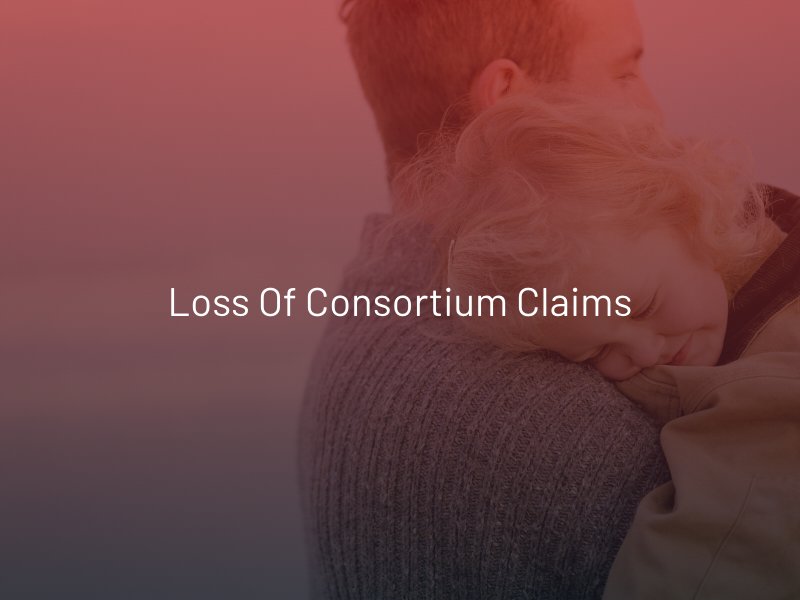Loss of Consortium Claims
Loss of consortium claims provide an avenue for certain relatives to seek compensation for damages suffered as a result of a loved one’s injury caused by the negligence or intentional actions of another party. This legal concept recognizes that a personal injury not only affects the victim physically and mentally but also disrupts the dynamics of their relationships.

What Exactly is Loss of Consortium?
Loss of consortium refers to a type of personal injury claim pursued to recover compensation to help restore and rebuild the emotional losses suffered by a victim’s family members. Consortium encompasses various aspects of a relationship, including the loss of companionship, emotional support, love, affection, intimacy, and the ability to engage in activities together.
Eligibility for Loss of Consortium Claims
To file a loss of consortium claim, certain criteria must be met. If you or a loved one are considering filing a claim, speak with an experienced Las Vegas personal injury attorney.
Criteria for a loss of consortium claim typically includes:
Existence of a Valid Relationship
The claimant must have a legal and recognized relationship with the injured party. This usually includes spouses, but in some cases, it can extend to other family members, such as children or parents.
Proof of Injury
It is essential to establish that the injured party sustained an injury due to the negligence or intentional actions of another person or entity. The injury should be significant enough to have an impact on the relationship.
Causation
The claimant must demonstrate a direct link between the injury and the negative effect on the relationship.
Damages
The claimant must provide evidence of the emotional harm, and losses suffered due to the injury.
Compensation for Loss of Consortium Claims
Some of the typical types of compensation awarded in loss of consortium claims include:
- Loss of Companionship: This includes the loss of emotional support, love, affection, and the ability to engage in shared activities.
- Loss of Intimacy: Compensation may be awarded for the loss of physical intimacy and the negative impact on the claimant’s marital relationship with their spouse.
- Loss of Household Services: If the injured party was responsible for performing household tasks, the claimant may be compensated for the loss of these services and the need to hire assistance.
- Counseling Expenses: In some cases, the claimant may be entitled to compensation for therapy or counseling required to cope with the emotional distress caused by the injury.
The amount of compensation awarded can vary depending on various factors, such as the severity of the injury and its long-term impact on the relationship.
Proving Loss of Consortium
Here are types of evidence that can help in proving the loss of consortium:
Documentation of the Injury
Gather all relevant documentation related to the injury, including medical records, accident reports, photographs, and any other evidence demonstrating the injury’s extent and severity.
Relationship Evidence
Provide evidence that illustrates the nature and strength of the relationship before the injury occurred. This can include photographs, letters, emails, witness statements, or any other form of documentation that demonstrates the emotional bond, companionship, and support shared between the injured party and their spouse or family members.
Expert Opinions
Evaluations and reports from therapists, psychologists, or marriage counselors can serve as valuable evidence in establishing the emotional and psychological harm suffered by the claimant.
Witness Testimony
Testimony from family members, friends, or acquaintances can provide firsthand accounts of the loss of companionship, affection, emotional support, or other damages suffered.